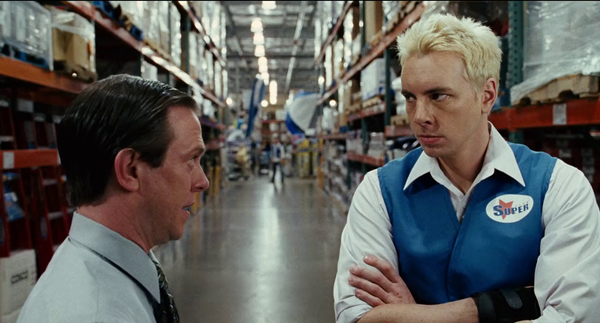Through the eyes of Americans who do not have substance problems, it is very easy to label another who does, in fact, have an issue. There is a particular stigma that hovers over users. The stigma that they are not the same as you and me because they are doing whatever their drug of choice is. Of course, with each drug comes its level of severity. If someone stands up and says they smoke weed, they may receive a high-five from the person sitting next to them. But in the row behind them, if someone stands up and says I am addicted to smoking crack-cocaine, the room would get silent.
They may be looked at like "oh he has a serious problem." In an article conducted by "Thefix.com," it discusses how addicts are still people and the hurdles they must go through while still in most ways ashamed of the problem they may have going on. It can create a lingering effect because of the embarrassment they feel for being hooked on a particular drug. "The cancer survivor is proud, but those in recovery from addiction face ongoing stigma and discrimination. Instead, people in recovery are faced with obstacles, especially those who have been in treatment or in the criminal justice system for chemical dependency." (The Fix, 2018)
In a survey conducted by Colleen L. Barry and her colleagues in 2013 on how people feel towards those who suffer from mental illness or a drug addiction. At the conclusion of the survey, it was discovered that 62% said they would rather work with someone who has mental health issues. But only 22% said they would rather work with someone with an addiction problem. (Bloomberg, 2017) The survey covered many grounds though as the questions covered stigma, public policy, discrimination, and treatment, it was not just directly about the work environment. It was even stated that drug addiction received far more negative criticism compared to mental issues in the public eye with the 700+ people they did this survey with. (Bloomberg, 2017)
At the end of the day, they might be people with an addiction problem, but they are still people who deserved to be treated like people and not quarantined diseased ridden people. We are in a society of monkey see monkey do so if one person feels a way about people who suffer from substance abuse it spreads like wildfire,
and the judgment begins. In today's society, one of the biggest trends is the drug trend.
Also, Music though it has always been in music. Amongst people and their peer's drugs are around, and they are being used with no fear of consequence. If someone in the group decides to not use they may be looked at as the outcast of the party because they might be the only person who is there thinking clearly with no kind of drug influence within them. With music, drugs are heavily influenced (considering what kind of music you listen to of course). Whether it is Xanax, Codeine, Cocaine, Pills, Weed, or Alcohol, it is being promoted one way or another, and the given person who is sober will really be looked at as someone who is "boring."
Even the culture of Rockstars in the 60's, 70's and 80's was all heavily into Heroin and LSD. One way or another it is constantly around us directly and/or indirectly. Many Musicians and famous people are no exception as plenty of legends have fallen due to substance abuse. There are plenty of people in America who would say drug abuse only happens in poor lower class neighborhoods.
Not only is that statement ignorant but it is not true. Drug Addiction is something that does not discriminate it could care less about sex, skin color, ethnicity, or wealth. Idols and stars have had their talented lives cut short due to a drug or alcohol problems. Names like Jimi Hendrix who died at the age of 27 (he is also apart of the infamous 27 club) due to drugs. Amy Winehouse whom also died at the age of 27 but due to fatal alcohol poisoning. Drugs could take a toll on you mentally especially if you had a very rough upbringing. Your status in society will mean nothing to you.
No matter how big you are. For example, the very talented Kurt Cobain who really kicked off the grudge genre of music with his band Nirvana in the early 90's was very known and was very open about his heroin use, which more than likely played a role in his decision to commit suicide. Even the King of Pop Michael Jackson had his issues as his autopsy revealed numerous drugs in his system at the time of his death. (Untimely Deaths, 2018) Drugs affect the individual user, their friends, and family, and it also affects society in a huge way as it is a trickle effect in the roles of society.
Addiction does not seek out the lower class communities, it seeks out whoever is ready to dabble with it. Regardless if it is prescribed or not it is something that will affect you when it comes to drug abuse. Your "class" is society means nothing to Addiction. If you are rich it is easier access to get to compared to a poor community that is the only difference.
"The Deadly Stigma of Addiction." The Fix, www.thefix.com/content/professional-voices-addiction-stigma-lethal70023.
Benham, B., & JH Bloomberg School of Public Health. (2017, April 27). Study: Public Feels More Negative Toward People With Drug Addiction Than Those With Mental Illness. Retrieved from https://www.jhsph.edu/news/news-releases/2014/study-public-feels-more-negative-toward-people-with-drug-addiction-than-those-with-mental-illness.html
Alcohol and Drugs: Untimely Celebrity Deaths. (n.d.). Retrieved from https://www.drugs.com/celebrity_deaths.html
- Drug Addiction in Health Care Professionals ›
- Drug Addiction | Dual Diagnosis ›
- Drug Abuse & Addiction: Effects on Brain, Risk Factors, Signs ›
- Drug addiction (substance use disorder) - Symptoms and causes ... ›
- Drug Abuse and Addiction | National Institute on Drug Abuse (NIDA) ›
- Drug Addiction - The Recovery Village ›
- DrugFacts: Understanding Drug Use and Addiction | National ... ›



















